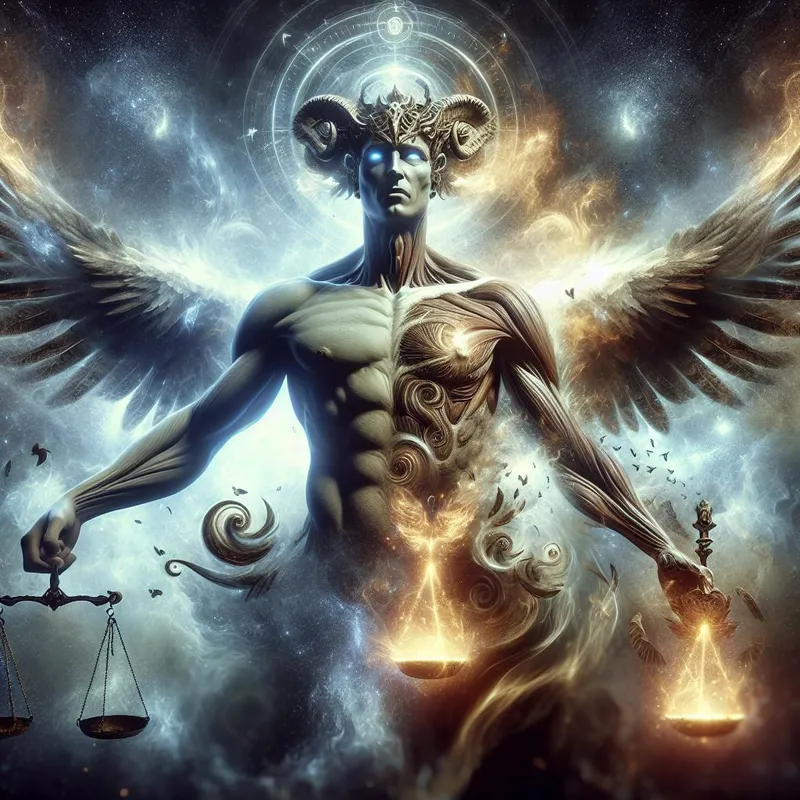
'Unveiling the Truth: Is God a Moral Monster? Exploring the Christian Perspective'
Posted on 16 May 2024
God: Moral Monster or Just?
When discussing the character of God, some people argue that He is a moral monster. They claim that God is hypocritical, selfish, arrogant, judgmental, hateful, and even homicidal. However, it is important to approach these claims with a comprehensive understanding of the Bible and its teachings.
The Standard of Morality
One problem with labeling God as immoral is that it requires a standard of morality separate from God. In order to claim that "God is morally wrong," one must define morality in a way that justifies this accusation. However, without God, there can be no truly objective morality. Concepts like suffering or human flourishing are subjective and lack a rational basis for moral reasoning. Thus, meaningful moral claims require the existence of God as the ultimate source of morality.
Why This Matters: Understanding that God is the foundation of moral principles helps us make sense of His actions and commands. It challenges us to question our own assumptions about morality and seek a deeper understanding of God's character.
Think About It: If morality is subjective and based on human opinion, how can we determine what is truly good or evil? How does this impact our understanding of justice and ethics?
The Problem of Evil
Another common objection is that God allows evil to exist, making Him morally questionable. However, this argument overlooks the existence of free will and the role it plays in human choices. While God allows evil to occur, He does not directly cause it. Evil arises from the misuse of free will by humans who choose to act against God's will.
Why This Matters: Recognizing that evil is a result of human choices helps us understand the consequences of our actions and the importance of using our free will responsibly.
Think About It: If God were to intervene and prevent every act of evil, would we still have true freedom? What would be the consequences of living in a world without free will?
Divine Commands and Justice
Some accuse God of being arrogant, selfish, or egomaniacal because He demands worship, punishes those who disobey Him, and condemns those who insult Him. However, these claims fail to consider the context of God's commands and His love for humanity. Just as good parents set rules for their children's well-being, God establishes guidelines for our benefit.
Why This Matters: Understanding God's expectations helps us recognize His love and desire for our best interests. It challenges us to trust in His wisdom and guidance.
Think About It: How does God's authority and desire for obedience reflect His love for us? How can we reconcile His demand for worship with His loving nature?
The Old Testament Wars
Critics often point to the wars described in the Old Testament as evidence of God's immorality. However, it is important to consider the historical and scriptural context of these events. When God commanded war against the Canaanites, for example, it was in response to their long-standing evil practices and warnings.
Why This Matters: Understanding the context of God's commands helps us see His justice and the importance of upholding moral standards. It challenges us to question our own moral judgments.
Think About It: How does the historical context of the Old Testament wars impact our understanding of God's actions? What can we learn from these events about the consequences of evil?
The Problem of Good
Critics often argue that if God created everything, including evil, then He is responsible for both good and evil. However, this overlooks the distinction between what God allows and what He directly causes. Evil arises from human choices, while goodness flows from God's nature.
Why This Matters: Recognizing that God is not the author of evil helps us understand His goodness and His desire to bring about a world without evil.
Think About It: How does the existence of evil challenge our understanding of God's goodness and sovereignty? What role do human choices play in the presence of evil?
The Promise of Redemption
Despite the presence of evil in the world, God has not remained idle. He has provided a plan to end all evil and suffering through the person of Jesus Christ. While this plan is not yet fully realized, everything is in motion toward that ultimate goal.
Why This Matters: Understanding God's plan for redemption gives us hope in the face of evil and suffering. It challenges us to seek a deeper relationship with Him and trust in His ultimate victory over evil.
Think About It: How does the promise of redemption shape our perspective on the problem of evil? How can we find hope and comfort in God's plan for ultimate restoration?
In conclusion, labeling God as a moral monster requires a standard of morality separate from God, which is ultimately flawed. Recognizing that evil arises from human choices and understanding the context of God's commands helps us make sense of His actions. Moreover, acknowledging that God is not the author of evil but offers a plan for redemption gives us hope and reassurance. Ultimately, engaging with these questions leads us to a deeper understanding of God's character and challenges our own moral assumptions.
